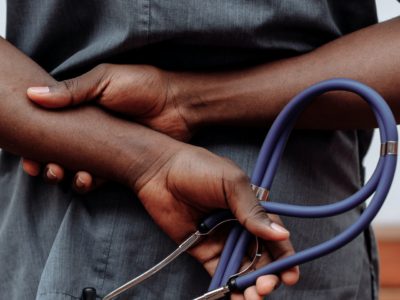India may be coming out of one of the worst coronavirus outbreaks since the start of the COVID-19 pandemic. Infections and deaths are slowing, but experts warn that new variants are still raging across the world’s largest democracy, where less than 4% of the population is vaccinated.
Hospitals and clinics are still overwhelmed with patients looking for emergency treatment. In a rural facility in northwest India, a doctor was recently beaten and whipped by a mob after losing one of his patients to the virus. Things are escalating quickly in a country where many people don’t have access to care.
Backlash from Bystanders
Dr. Seuj Kumar Senapati was fulfilling his government-ordered assignment at a rural clinic in the Hojai district of Assam when a mob broke out and attacked him. He had just completed his post-MBBS internship and was providing care to rural areas that often have little to none.
The doctor was whipped and beaten with brooms, utensils, and lashes. Some of the incident was even captured on video and has since gone viral. Images of the doctor’s welts and bruises have also been making the rounds on social media, painting a dark picture of what it’s like to work in India during the pandemic.
Hojai district SP Barun Purakayastha issued a statement: “The patient died at the hospital. The mob consisted of relatives and friends of the deceased. Some of them had come with the patient from their village while some came later on hearing that the patient had died. All perpetrators have been arrested.”
Assam Chief Minister Himanta Biswa Sarma posted the names of all the attackers on Twitter. “24 culprits involved in this barbaric attack have been arrested and the chargesheet will be filed at the earliest. I am personally monitoring this investigation and I promise that justice will be served,” he tweeted.
Indian Medical Association’s Assam unit sent out a message asking doctors not to perform patient services outdoors in an act of protest. The group is also asking the government to station armed guards at healthcare facilities around the area.
“We are happy with the immediate steps that the government of Assam has taken. We will be closely monitoring the situation and pressing for justice in the matter,” Dr. Satyajit Borah, president of the Assam unit of the IMA, told a local news outlet.
The Haves and Have-nots
It’s unclear what led to the attack, other than the death of the patient. The latest outbreak has caused untold suffering across India, leaving low-income individuals in rural areas to largely fend for themselves.
The country has administered just 230 million doses of the vaccine out of a population of 1.4 billion. India recently allowed patients to pay higher prices for the jab at private healthcare facilities, favoring urban areas and those who are willing to pay. Vaccine hesitancy remains strong in rural areas, making it difficult to contain outbreaks.
There are signs that suggest India is moving closer to recovery. The country recorded 134,154 new infections on Thursday, down 65% from the peaks reported in early May. Two of the country’s largest cities, Delhi and Mumbai, recently announced plans to partially reopen their economies, but it’s not clear when less populated areas will get back to normal.
Rising Violence
Just two days after the assault in Assam, several healthcare workers were attacked at the Jawaharlal Nehru Institute of Medical Sciences (JNIMS) Hospital in Manipur’s Imphal East district. So far, two culprits have been arrested.
“The patient was admitted to the hospital three days ago with severe COVID-19 complications and was advised to be admitted to the ICU, but the patient’s family members refused,” local sources confirmed.
According to the report, several family members allegedly began vandalizing equipment and supplies in protest when they were told they couldn’t join the patient in the ICU. Security footage shows the COVID-19 ward ripped to shreds. The 33-year-old patient later died of the disease.

Dr. Kh Lokeshwar Singh, medical superintendent at JNIMS, said, “Police have detained two persons in connection with the incident. It is very unfortunate that frontline health workers are being targeted, even though they are working day and night to save people during this pandemic situation.”
We may see more violence come out of India in the days and weeks to come. It’s too soon to say whether the country’s devastating second wave is over. We send our regards to the frontline workers trying to save as many people as they can.

















